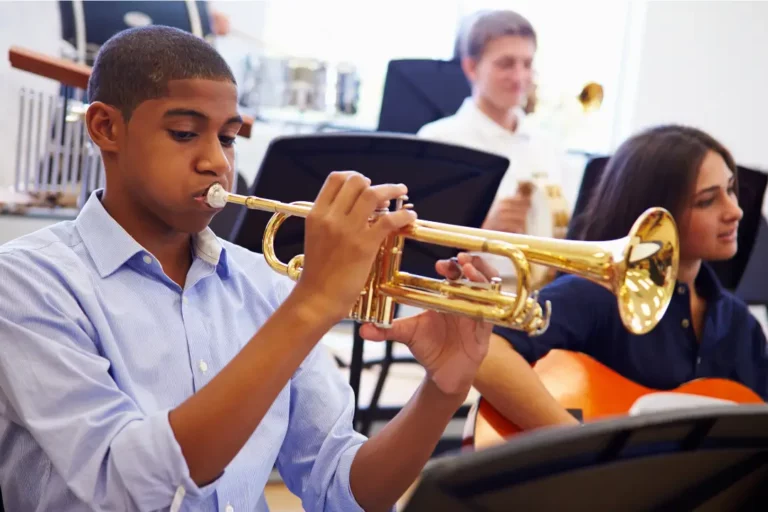Perhaps you’re a high school senior finalizing your college application, trying to decide which college to choose. There are many considerations to weigh, such as a school’s size, reputation, location, student lifestyle, cost, and financial aid—all of which will play a part in your decision. One factor to consider is the college’s size. Whether you’re deciding between an urban or rural school or a private or public institution, there are many benefits to attending a small liberal arts college.
What is a Liberal Arts College?
The most basic definition of a liberal arts college is that it’s an undergraduate school that focuses on a liberal arts education. Rather than steering students into a highly focused education primarily focused on training students for a single specific career, Liberal Arts institutions seek to provide a well-rounded education that develops the whole person. To that end, they offer a broad range of courses in the arts, natural sciences, humanities, and social sciences. Because they tend to be smaller and therefore less competitive in athletics, many liberal arts colleges are not household names, so for many people, the first time you hear about specific liberal arts colleges may be when you’re doing your college search.
Though small liberal arts colleges are, by design, not as popular as larger universities, these institutions provide superb liberal arts education, engaged communities, and amazing preparation for your career path. These colleges’ unique characteristics are best made sense of when compared with those of large universities.
What makes a Small Liberal Arts College Unique?
Unlike large universities, liberal arts colleges tend to be small and intimate, with a reputation for providing high-quality education. The undergraduate population of a liberal arts college is often small, typically less than 3,000 students, compared to the large enrollment of a large university, which can exceed 5,000 students.
The admissions process for small liberal arts colleges emphasizes students’ potential fit. Additionally, these small colleges focus on undergraduate education; whereas large or research universities focus on graduate education and research.
Here are ten benefits of attending a small liberal arts college:
1. Financial Aid
The majority of these small colleges are private institutions, and the tuition is often expensive in comparison to public colleges. Because of this, most liberal arts colleges have financial aid programs that significantly reduce the cost of tuition. Financial aid programs offer scholarships to students based on need, merit, and talent. As a result, students often find they have to pay less, or about the same, out of pocket to attend a small liberal arts college than they would at a large university.
2. Undergraduate Focus
These colleges emphasize the importance of undergraduate education and value hands-on learning inside and outside the classroom. Larger public universities, especially research universities, focus on graduate students and research. This is not to say that undergraduate students at large colleges do not receive a fantastic education, but in general, small colleges place a greater focus on their undergraduate populations than do larger research universities.
3. Student Activities
In contrast to larger universities, these colleges have fewer student organizations and activities; however, participation in student organizations is much higher. More time is spent on activities that benefit all students and their community, rather than on competitive athletics and club sports.
Notably, the smaller communities at these small colleges allow students to participate in student organizations unrelated to their majors, encouraging them to be more well-rounded. For instance, a biology major at a small liberal arts college is more likely to participate in a literary magazine than she would be at a large university, where participation might be entirely reserved for students studying the arts and humanities.
4. Smaller Class Size
Due to their size, tend to have smaller class sizes, which allows for more one-on-one contact between teachers and students. The smaller size of these colleges allows for a more personalized approach by instructors to help students develop skills and learn effectively. Average class sizes are around 30 students, and a senior seminar might count less than half a dozen students. These small class sizes give the students more opportunities to get to know their professors and classmates.
Students are not merely “another face in the crowd,” if you prefer a more intimate learning environment, small liberal arts colleges are definitely worth considering, due to their smaller class sizes and more personalized teaching.
5. Access to Professors
At larger colleges, the majority of the courses are taught by teaching assistants—often graduate students who have very little or limited teaching experience. This is not the case in these small colleges, where even introductory courses are taught by professors with vast teaching experience, allowing students to have a more comprehensive knowledge and understanding of the course content.
Since liberal arts schools are usually small and have smaller class sizes, you’ll have the opportunity to build relationships with your professors and learn from them in more depth. In addition, the low student-to-faculty ratios in small colleges provide students with more one-on-one time with professors, which will enable them to personalize their education.
6. Small Campus Communities
Larger colleges have less camaraderie because they have a large student population that is spread out over a large campus. Small, private liberal arts colleges are small enough that students can get to know a large proportion of the students, faculty, and staff. As a result, students have more opportunities for mentorship and professional networking.
Liberal arts colleges’ small size means that students often take part in community service projects or participate in extracurricular activities outside of their major. Student organizations on campus bring students together, which often leads to strong and long-lasting bonds between classmates and friends, which can make college feel a bit more like a small community.
7. Employers Value Liberal Arts Education
A liberal arts education is highly valuable in today’s job market. The broad range of skills in intellectual flexibility that small liberal arts colleges develop can make you a more competitive candidate. These skills are typically developed through an intimate in-class learning environment, as well as out-of-classroom activities such as volunteer work, internship, and community service.
The intimate learning environment of small colleges makes you more well-rounded as a candidate and also provides valuable skills that make you much more competitive in today’s job market.
8. Critical thinking
Small colleges are able to foster critical thinking through smaller classes that involve frequent classroom discussions, which avail students with the opportunity to communicate their thoughts and ideas, listen to others, and think critically. In larger colleges with large classes, lesions are usually delivered using a lecture-style mode limiting the students’ opportunity to express their thought and ideas and to think critically.
The smaller classes in small colleges also contribute to the development of critical thinking by providing students with opportunities to question the teacher’s assumptions or reasoning. In larger colleges, this is not as common because of the size of the classroom.
9. Preparation for Graduate School
Small colleges are also a good choice for students who plan to attend graduate school. Small colleges tend to prepare their students well for graduate-level education because they focus on thinking critically, writing papers, and class participation. Additionally, students have many more opportunities to engage in research activities as undergraduates.
10. More opportunities for leadership
Finally, attending a liberal arts college prepares students especially well for leadership positions. They provide many opportunities for community service, entrepreneurship, research, and public speaking. Due to the large organization and class sizes on some college campuses, students lack opportunities to take on leadership roles. A liberal arts education at a smaller school provides students with more opportunities to become leaders and community builders.
We highly recommend that you check out our other blogs on “Factors to Consider When Choosing a College”.







